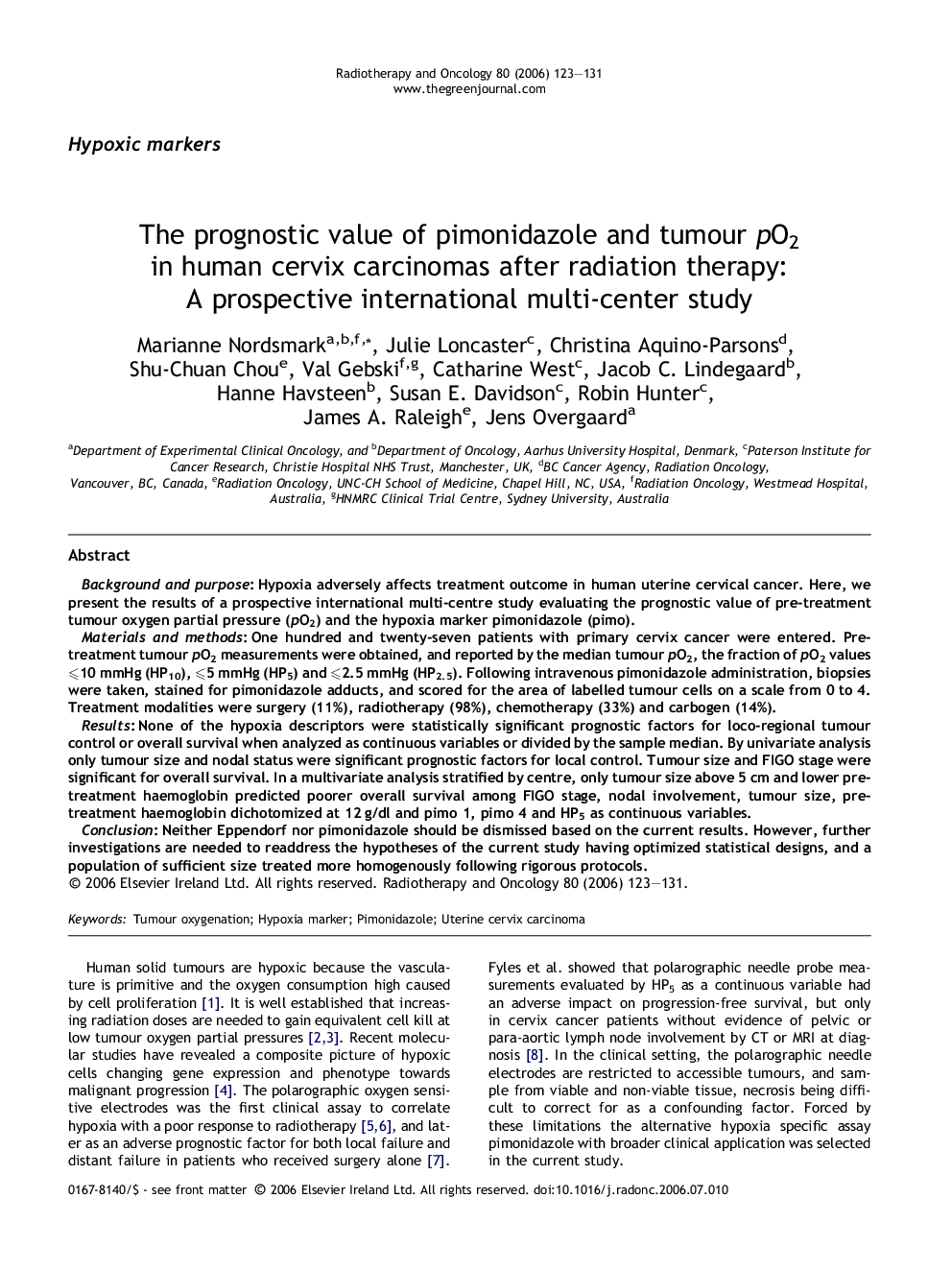| Article ID | Journal | Published Year | Pages | File Type |
|---|---|---|---|---|
| 2161313 | Radiotherapy and Oncology | 2006 | 9 Pages |
Background and purposeHypoxia adversely affects treatment outcome in human uterine cervical cancer. Here, we present the results of a prospective international multi-centre study evaluating the prognostic value of pre-treatment tumour oxygen partial pressure (pO2) and the hypoxia marker pimonidazole (pimo).Materials and methodsOne hundred and twenty-seven patients with primary cervix cancer were entered. Pre-treatment tumour pO2 measurements were obtained, and reported by the median tumour pO2, the fraction of pO2 values ⩽10 mmHg (HP10), ⩽5 mmHg (HP5) and ⩽2.5 mmHg (HP2.5). Following intravenous pimonidazole administration, biopsies were taken, stained for pimonidazole adducts, and scored for the area of labelled tumour cells on a scale from 0 to 4. Treatment modalities were surgery (11%), radiotherapy (98%), chemotherapy (33%) and carbogen (14%).ResultsNone of the hypoxia descriptors were statistically significant prognostic factors for loco-regional tumour control or overall survival when analyzed as continuous variables or divided by the sample median. By univariate analysis only tumour size and nodal status were significant prognostic factors for local control. Tumour size and FIGO stage were significant for overall survival. In a multivariate analysis stratified by centre, only tumour size above 5 cm and lower pre-treatment haemoglobin predicted poorer overall survival among FIGO stage, nodal involvement, tumour size, pre-treatment haemoglobin dichotomized at 12 g/dl and pimo 1, pimo 4 and HP5 as continuous variables.ConclusionNeither Eppendorf nor pimonidazole should be dismissed based on the current results. However, further investigations are needed to readdress the hypotheses of the current study having optimized statistical designs, and a population of sufficient size treated more homogenously following rigorous protocols.
